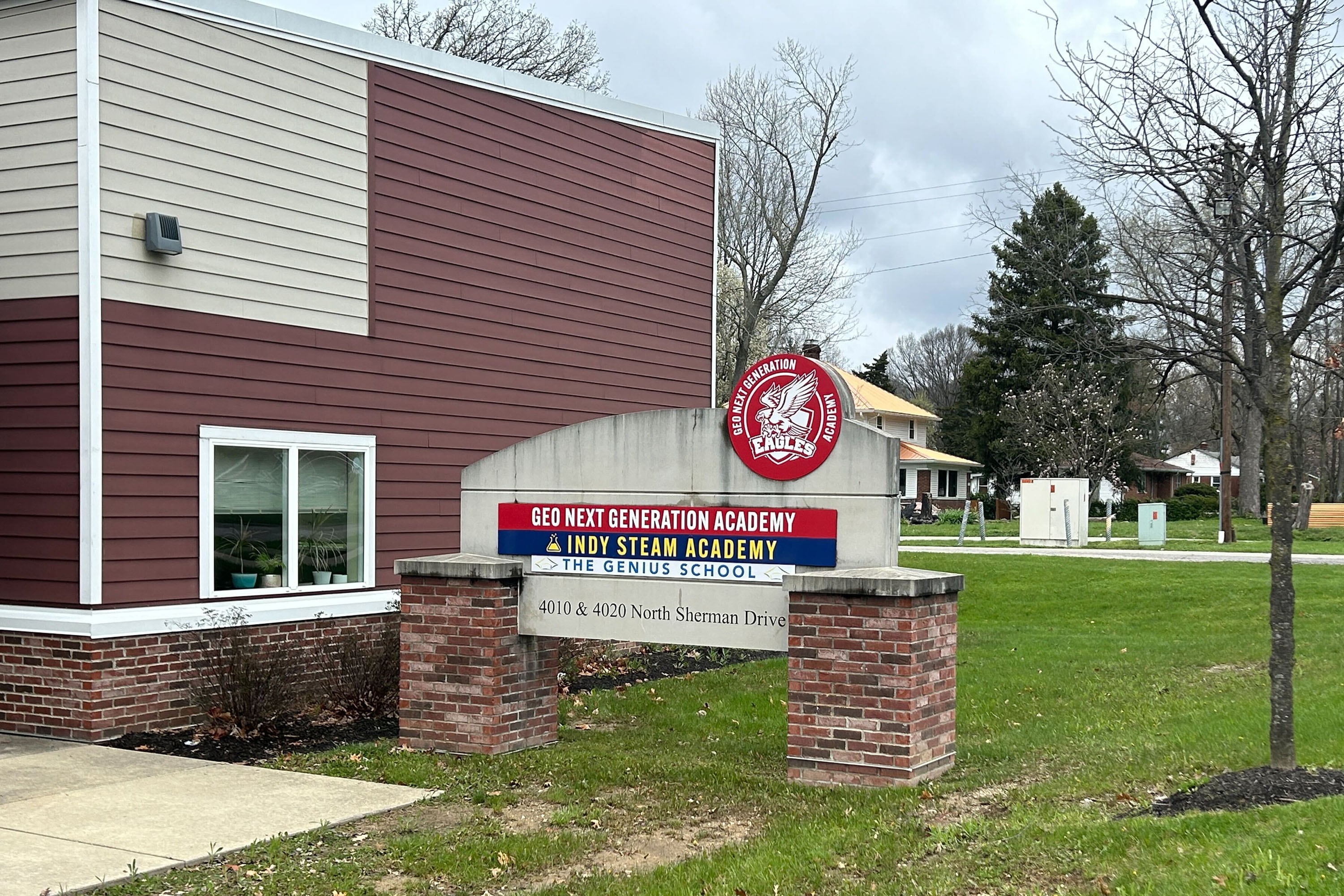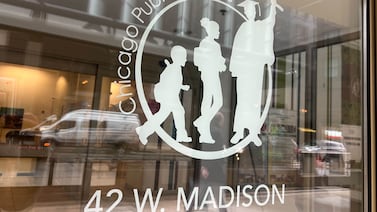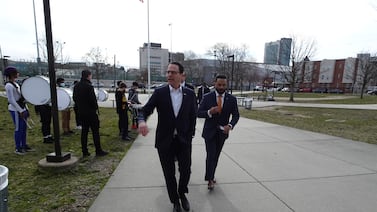Sign up for Chalkbeat Indiana’s free daily newsletter to keep up with Indianapolis Public Schools, Marion County’s township districts, and statewide education news.
An Indianapolis charter school with a checkered academic record will operate as a private school this fall, a switch that will allow it to accept state tuition vouchers while skirting its previous accountability standards.
With no discussion, the State Board of Education voted unanimously Wednesday to give provisional accreditation to the Genius School, which serves a little over 100 K-6 students on the city’s east side, as a private school.
The approval is another lifeline for the charter school, which was initially named Ignite Achievement Academy and tasked by Indianapolis Public Schools to improve an underperforming school near the city’s Riverside neighborhood. It also means the school won’t have to follow accountability standards set by charter authorizers, which are tasked with overseeing charters and holding them accountable.
The move by the Genius School also comes at a time when the number of students using vouchers to attend private schools is skyrocketing. Indiana lawmakers changed the state’s Choice Scholarships program last year to significantly expand the number of eligible students.
The school did not immediately respond to a request for comment.
State Board of Education member Scott Bess said in an interview with Chalkbeat after the vote that he was aware of the school’s history, but said state law provides a narrow set of criteria that the board can use for deciding whether to accredit a private school. He said now the school’s fate will essentially be left up to parents and the school choice market.
“I do know they have a very loyal subset of parents and students who would follow them anywhere,” Bess said of the Genius School, adding that the key question now is whether the school will be able “to get enough parent and student retention and expansion to make sure that they’re viable.”
The Genius School’s transition to operating as a private school was made easier several years ago by state lawmakers. In 2017, legislators changed Indiana law to allow the state board to accredit a private school as soon as it begins operating, allowing them to begin accepting state-supported vouchers faster.
State law also requires voucher-eligible schools to administer state tests.
The state’s “performance-based” accreditation system has not been fully developed. Instead, the state has been using an application review and submission process outlined in a 2021 memo while it drafts rules for this system, granting schools “provisional” accreditation that still grants them access to vouchers.
A school still must apply for and be approved to participate in the voucher program, according to the Indiana Department of Education. The application window for 2024-25 is open and closes on Sept. 1.
The school plans to operate at New Life Worship Center in Pike Township, charging a tuition of $9,010, according to a memo from the department’s Office of School Accountability.
But preliminary voucher amounts for students in the Metropolitan School District of Pike Township, where the school will be relocating, and Indianapolis Public Schools — where the school currently is and where families may choose to transfer from — will probably provide much less than the Genius School’s planned tuition.
Each Pike Township student will receive an estimated $6,829 in voucher awards in the first award period for the 2024-25 school year. Each IPS student will receive an estimated $7,233.
A majority of the Genius School’s current students are eligible for free or reduced-price meals, an indicator that they come from low-income families. So it’s unclear whether it will continue serving a similar student population in its new location and with its new tuition cost.
Ignite’s turnaround work in Indianapolis did not go well. IPS eventually removed Ignite from its autonomous network of Innovation Schools, citing low academic performance and staff turnover. The school also faced a discrimination lawsuit that it eventually settled.
The school remained open but relocated, and in 2022 it changed its name to the Genius School. On probation from its authorizer, the mayor’s Office of Education Innovation, the school sought charter authorization from Education One at Trine University instead. That authorizer rejected the school’s application late last year.
The school eventually plans to enroll a maximum of 250 students by its fifth year, according to the memo from the Office of School Accountability.
The school said in its accreditation petition submitted to the state board that it will likely serve “predominantly minority children.” It will also prioritize a “holistic curriculum” that will “encompass socio-emotional learning and cultural enrichment.”
Amelia Pak-Harvey covers Indianapolis and Lawrence Township schools for Chalkbeat Indiana. Contact Amelia at apak-harvey@chalkbeat.org.







